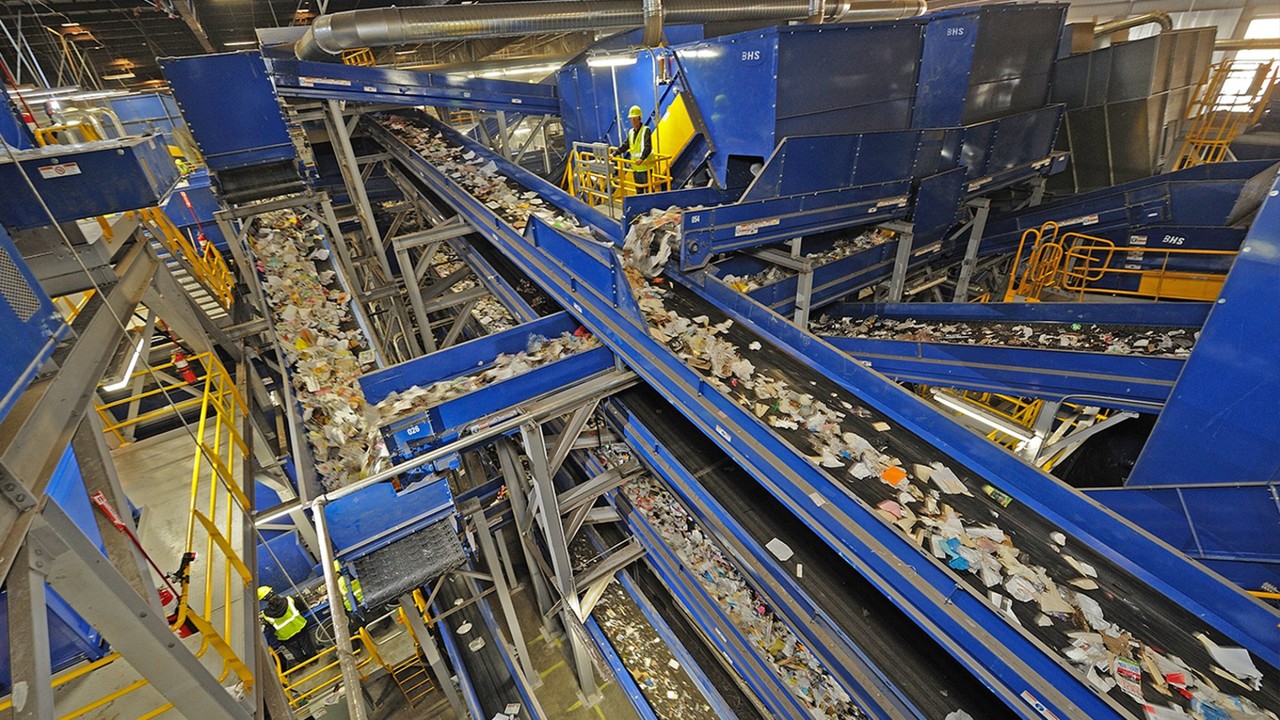Materials recovery facility in Montgomery, AL (Source: Bulk Handling Systems)
Although America may not have much of a reputation for environmentalism on the global stage these days, many of our cities are recycling more than ever. Seattle, one of the top recycling cities in the nation, recycles about 60% of its municipal solid waste (MSW) and aims to recycle 70% by 2025.
Things were very different just 30 years ago. In 1987, there was no curbside recycling in Seattle. New Jersey was the only state that mandated the separation of recyclables from waste. Japan, South Korea, and Taiwan were the top destinations for American scrap. If you operated a materials recovery facility (MRF) then, you might never have imagined the world we live in today – the proliferation of electronic devices, rise of plastic packaging, optical separation technologies, or the emergence of China as our top scrap destination.
Despite our impressive progress, American recycling is in trouble. Recent decisions in faraway China are having a direct, and possibly damaging, impact on our recycling programs.
This article looks into issues affecting American recycling and the opportunities presented by advances in robotics and artificial intelligence (AI).

